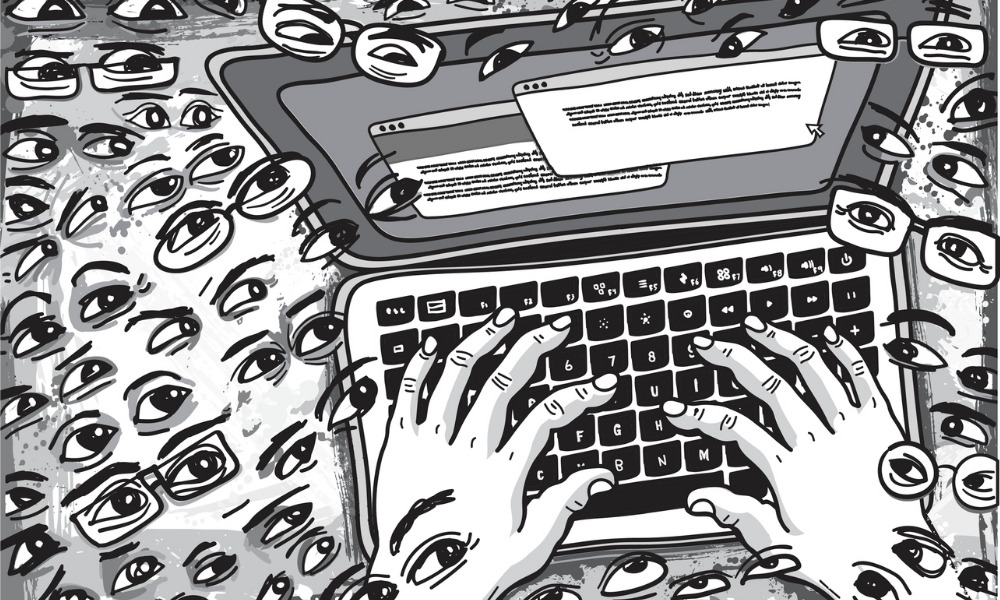Webcams at home take employer monitoring to new low

Imagine having a camera staring into your face all day, mere inches away.
That’s what’s being proposed and promoted by Teleperformance, a global call centre company that is looking to closely monitor work-from-home employees.
The company has told some U.K. staff that it plans to install specialist webcams to check if remote workers are violating rules. The cameras are connected to an artificial intelligence system (ANI) that will randomly scan for breaches of work rules during a shift, according to the Guardian.
The webcam system “monitors and tracks real-time employee behaviour and detects any violations to pre-set business rules, and sends real-time alerts to managers to take corrective actions immediately,” according to the report.
A photo of any breaches is sent to a manager. Possible wrongs include “missing from desk,” “detecting an idle user,” “unauthorized mobile phone usage” and another person being in the workspace area.
Not surprisingly, this invasive approach is not going over well with workers, unions or the courts. In January, Albania’s information and data protection commissioner released a decision stating that Teleperformance could not use webcams to spy on Albanian workers in their homes.
While we’ve heard about employers having trust issues when it comes to employees on their own at home, the approach by Teleperformance is highly intrusive. While it’s true that employers can better watch staff when they’re at the office to make sure they’re not taking too many breaks or sitting idly on their phones, having a camera in someone’s face for a full shift is very different – especially in the privacy of your own home.
Plus, many employees are working in shared spaces so they can’t guarantee that nobody else will come by. In taking the job, they are promising their employers they will work a full shift, not promising they will be bolted to their chairs with no interruptions the whole time, their every move monitored.
And does this even work properly? The use of AI technologies is still a huge concern when it comes to area of HR such as recruitment, with accuracy often questioned. How often will workers be flagged for innocent behaviour? How often will managers be expected to discipline employees for harmless activity?
Employers should consider whether the monitoring is necessary to meet a specific need or issue, says Anna Abbott, an employment lawyer at Blake Cassels & Graydon in Toronto.
Of course, a move like this definitely won’t help with employee morale, engagement or retention ─ if it’s even allowed, according to the applicable privacy laws.
We’ve also heard that this kind of invasive approach doesn’t necessarily get results. Take, for example, a University of British Columbia study released in 2020. It found that technologies that aim to capture the physical activity of employees, such as cameras and movement trackers, are not associated with work productivity and task achievements, but more about monitoring them or their bodies in the environment, says “An Empirical Assessment of the Intrusiveness and Reasonableness of Emerging Work Surveillance Technologies in the Public Sector.”
As we’ve heard before, there are more practical ways to keep tabs on productivity, such as goal-setting with measurable results.
And while many (90 per cent) employees working from home say they are open to their employer having visibility into their daily productivity, according to a recent U.S. survey, it’s not really clear what kind of “visibility” we’re talking about.
I doubt you’d see 90 per cent of workers saying they’re OK with a webcam staring them in the face, monitoring their every move all day long at home.




